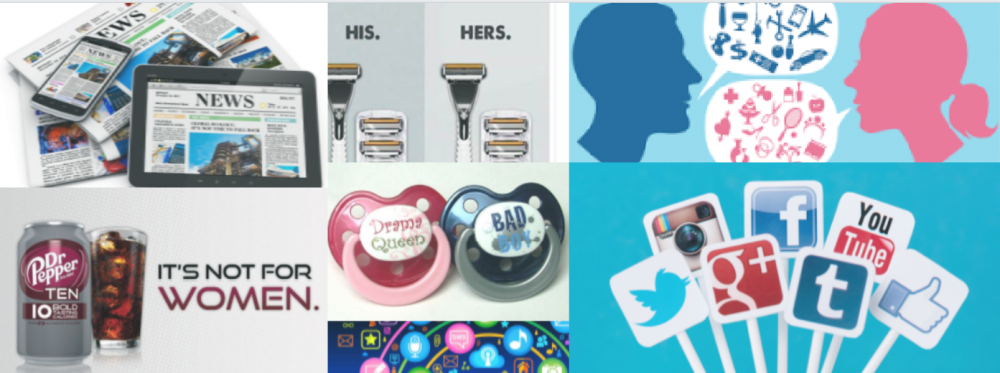Coming from a background lacking in knowledge of feminism, I only had superficial thoughts on the topic based on snippets of information I have heard in the past. To my understanding, feminism describes the movement promoting women’s rights with the goal to the close gender disparities in the U.S.
“Sex appeal is a job requirement, wearing makeup is a rule, and women are fired if they exceed the age or weight deemed sexy” (“A Day Without Feminism”).
After reading the essay, I found myself feeling anger in imagining life without the freedom women utilize today. Although I remembered women were restricted in control, I had forgotten how severe the restriction was compared to today and my blood reached boiling point while reading the offenses qualifying as sexual harassment in today’s culture. The introduction was not an emotional read, but it did solidify my understanding of how feminism aims to free all women and that the bond of sisterhood symbolizes homogeneity among women of all demographics. Unfortunately however, the first wave of feminists neglected the individual needs of women who were not well-off white housewives – poor women and black women.
Another issue with the initial feminists was the exclusion of transwomen. This begs the question of how feminism intersects with gender. “Night to His Day” (“Night to His Day: The Social Construction of Gender”) hits the nail on the head when it comes to explaining the complexity between the need for the social categories, the presence of variation among individuals, and the uneasiness which occurs when someone cannot be neatly categorized. A piece of information some people forget is the fact some people assume the other gender in order to fit into a desired group or occupation; this however does not mean the person’s gender identity lied in that role permanently. It begs the question of where the line between gender identity and gender roles resides. Do people take on gender roles in consequence of their gender identity or do they identify with the gender complimenting self-chosen roles. The article also shows how much culture has changed as far as language, using the terms “transsexual” and “transvestite”, both of which have a negative connotation in today’s American society.
Another facet of feminism often forgotten is the fact different countries are in various stages of equality between the sexes. I admire the Nicaraguan dancers for their courage and drive to share their country’s story and be activists with Women in Action (Daughters of Corn Dance Troupe). I found the history of Women in Action empowering, but also eye-opening at the difference in culture – the US has domestic abuse, but not as the cultural norm. I understand the work of Women in Action in the neighborhood of La Primavera in Managua to have the goal of balancing the power of the sexes. Historically, men dominated their wives, and nothing was done because it was the norm. Women in Action seeks to break this chain of abuse by hosting meetings with the women in the neighborhood. Women are generally being treated better since Women in Action started, but that is not to say problems have disappeared. Some husbands go through with killing their wife because they figure they are going to jail anyways; that conclusion is disheartening, but I have hope the newer generations are growing up with different values than their parents and grandparents. The talk made me realize feminism is globally connected – countries deal with similar cases of power imbalance and violence despite differing cultures and locations. I know in some countries, I think in the Middle East or maybe in Africa, rape is not a concept – if a man leaves his partner unattended, she is open to assault without legal repercussions on the attacker. I would like to know about programs in other countries/towns like Women in Action.





